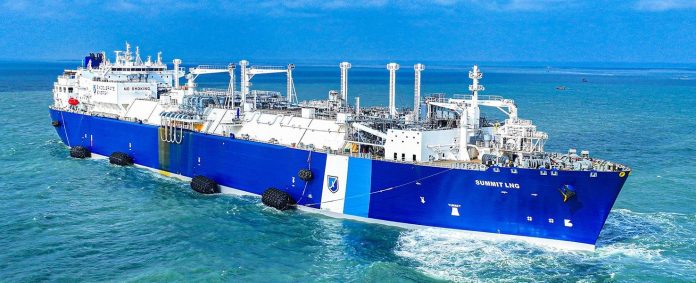Petrobangla has proposed increasing the natural gas price for fertilizer production from Tk 16 to Tk 40 per cubic meter, a move that the Bangladesh Chemical Industries Corporation (BCIC) warns could trigger a crisis if the government fails to finalize subsidy adjustments for the sector beforehand.
The public hearing on Petrobangla’s proposal to increase gas prices for fertilizer factories has concluded, with stakeholders given to submit written opinions until October 13.
During his concluding remarks, Bangladesh Energy Regulatory Commission (BERC) Chairman Jalal Ahmed said the commission would take a “balanced approach” considering all aspects of the gas price issue.
“Rising gas prices will raise fertilizer production costs, and we must keep agriculture in mind,” he said. “Although agriculture’s share in GDP is smaller now, its importance in food security and employment remains vital. At the same time, the cost of LNG imports must also be considered.”
At the opening session, the chairman explained that a public hearing is a legal process where the proposer must justify the price revision, while those opposing it must provide logical grounds for their objections. The commission will evaluate the reasoning on both sides before issuing a final order.
According to Petrobangla’s proposal, if prices are raised, the corporation would import seven additional LNG cargoes to ensure uninterrupted gas supply for fertilizer plants. It plans to supply 250 million cubic feet per day (mmcfd) of gas during the October–March peak period, followed by reduced volumes in subsequent months. On October 3, fertilizer factories received 92 mmcfd of gas.
However, Delwar Hossain, BCIC’s Director (Planning and Implementation), alleged that in 2022, Petrobangla similarly raised gas prices—from Tk 4.45 to Tk 16—promising higher supply but failed to deliver.
“If full gas supply is ensured, over 2 million tonnes of fertilizer could be produced domestically,” he said. “Even at Tk 30 per cubic meter, local production would still be cheaper than imports.”
He added that at a gas price of Tk 30, fertilizer production cost would reach Tk 46 per kilogram, compared to Tk 61 for imported fertilizer. Without resolving the subsidy (trade gap), factories would face severe financial stress, leading to payment delays and production disruptions. Hossain suggested that the mixed gas price should remain below Tk 28.
Consumer representatives at the hearing strongly opposed the price hike, saying it would increase fertilizer costs and burden farmers. One participant proposed a slab pricing system, under which factories receiving higher gas supply would pay a higher rate — to avoid “raising prices without ensuring supply,” as happened in 2022.
BCIC reported that the current production cost per kilogram of urea stands at Tk 38, while the corporation sells it to dealers at Tk 25, who in turn sell at Tk 27. The government currently provides a Tk 13 subsidy per kilogram to cover the gap, which would widen if gas prices increase.
BCIC’s data show that despite previous promises of increased supply, gas deliveries to fertilizer factories have declined. In FY2024–25, only Ghorashal Palash Fertilizer PLC operated at nearly full capacity, while Jamuna Fertilizer remained shut for 361 days, Chattogram Urea for 273 days, Ghorashal for 198 days, and Ashuganj Fertilizer operated only 3.75% of the time due to gas shortages.
Meanwhile, the foreign-owned KAFCO plant continues to receive uninterrupted gas under a separate contract and sells fertilizer to Bangladesh in US dollars at international prices. The contract was recently renewed at Tk 30 per cubic meter.
BCIC said Bangladesh requires 3.0–3.2 million tonnes of urea annually, but due to gas shortages, 1.6–2.1 million tonnes must be imported. Frequent shutdowns have also raised operational and maintenance costs at domestic plants.
Moniruzzaman, Deputy Secretary of the Agriculture Ministry, said there is no proposal to raise fertilizer prices for farmers. “However, if production costs increase, the Finance Ministry’s opinion will be required to cover the subsidy gap,” he added.
Officials from Petrobangla and several gas distribution companies — including Titas, Karnaphuli, and Bakhrabad Gas — presented their proposals and answered questions during the hearing. Industry representatives, CNG filling station owners, and media members also participated.

